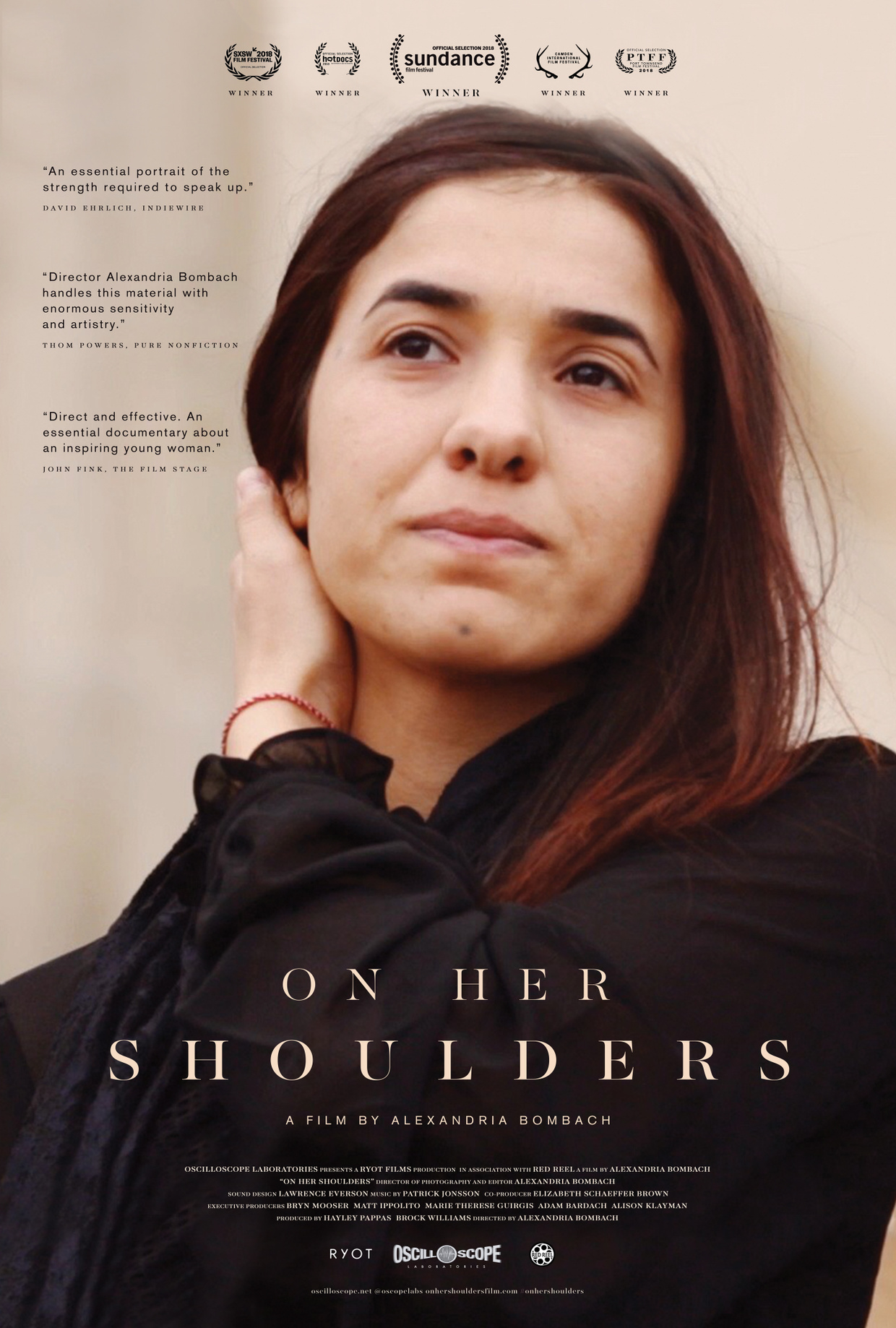Film Review: On Her Shoulders (2018)



On Her Shoulders is about people’s willingness to turn a blind eye to genocide. It’s infuriating to break down that sentence and dissect everything that’s wrong with it. But, even in this so-called “modern world,” it still needs pointing out that people all over the globe are being murdered and enslaved on a grand scale. Nadia Murad is here to pry those eyes wide open and keep them open until something is done about these atrocities. She does so by repeating her story over and over to everyone she meets, a duty that comes with a high emotional price for her. We owe it to her to listen.

I’ll be brief with Nadia’s story, as it is hers to tell. In 2014 she was kidnapped by ISIS from her village in northern Iraq. Most of her family were killed (along with at least 600 others), with the young women being taken into captivity to be beaten and enslaved. Eventually, she managed to escape to a refugee camp and was sent, along with many others, to resettle in Germany. Many of her people – of the ethnic minority Yazidi community – remained in ISIS custody. It wasn’t long before she was telling her story to the world in attempts to stop the genocide and sex trafficking taking place in her homeland. She found herself in front of heads of state, religious leaders, and the UN. In 2018, along with Dr. Denis Mukwege, she won the Nobel Peace Prize for her work.

We follow Nadia and she tells her story repeatedly – almost ad nauseum. What’s interesting is that she is clearly deeply affected with every telling. For some, a sense of desensitization may set in, but for Nadia, the wounds open back up each time. This analogy isn’t quite right, though. For a wound to be opened it’s implied that it is somewhat healed. Nadia’s trauma is as fresh as the day she was kidnapped and saw her family murdered. She is relentless in her recounts because so many of her community are still missing. She can’t stop until they are free. What transpires over the course of the film – the stories of horror and frustrations with lip-service condolences – is nothing short of gut-wrenching.

What’s beautiful about On Her Shoulders are the little glimpses we get of Nadia being a typical young woman. The pride she feels in herself after having her hair done and told she’s beautiful. Going shopping and trying on outfits. Joking around with her fellow activists and supporters. All this stands as a stark reminder that this is a woman who is trying to get her life back – and the lives of untold numbers of others like her. She then turns almost cold as she stares into the camera and talks of, not revenge, but justice. She’s fierce and angry, and justifiably so. She will take no shit from anyone ever again – and for that, I admire her immensely.

On Her Shoulders is a tough film to watch, but it’s an important one. Some are only interested in her story for its sensationalist aspects. Don’t be that person. This isn’t a historical documentary – this is happening in the here and now. I suggest you check your sensitivity at the door and listen to Nadia’s story with open ears and hearts.
